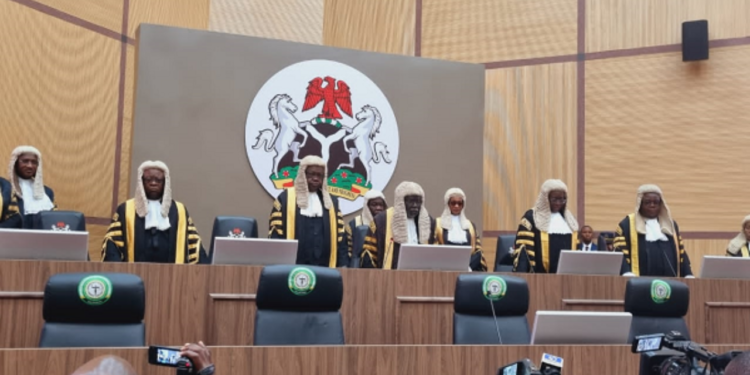ABUJA — The Supreme Court has declared that the collection of funds meant for local government areas (LGAs) by state governments is unconstitutional. The landmark ruling was delivered on Thursday by a seven-member panel of the Supreme Court.
Justice Emmanuel Agim, delivering the verdict in the case marked SV/CV/343/2024, ruled in favor of the Attorney General of the Federation and Minister of Justice, Prince Lateef Fagbemi, SAN. The suit, filed against the 36 state governors, sought full autonomy for the country’s 774 local governments.
The court’s decision sets a significant precedent, stating that the retention of funds from the federation account by states on behalf of local governments violates Section 162 (4, 5, and 6) of the constitution.
The federal government argued that the constitution grants local governments autonomy and that state interference with their funds is illegal. The suit, which cited 27 grounds, accused the states of abusing their power and sought “an order prohibiting state governors from unilateral, arbitrary, and unlawful dissolution of democratically elected local government councils.”
In response, the 36 states opposed the suit, urging the court to dismiss it for lack of jurisdiction. However, the Supreme Court upheld the federal government’s position, asserting that governmental power is divided among the federal, state, and local levels.
The court further declared that state governments have no authority to appoint caretaker committees for local governments, emphasizing that a local government council is only valid with a democratically elected government. Appointing caretaker committees would constitute a breach of the 1999 constitution.
“A democratically elected local government is sacrosanct and non-negotiable,” Justice Agim stated. “Henceforth, no more payment of the local government area allocation to the state government accounts. I hold that the plaintiff’s request is hereby approved and all the reliefs granted.”
The Supreme Court dismissed all preliminary objections to the suit. This ruling grants financial autonomy to local governments, allowing them to manage their funds independently and receive allocations directly, bypassing state governors.

































